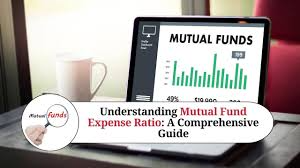February 27, 2025
Investing in mutual funds can build long-term wealth, but many beginners make costly mistakes that hurt their returns. This guide highlights the top mutual fund mistakes to avoid in 2025, ensuring you make smart, profitable investments.

✔ Expense ratios determine how much of your returns go to fund management fees. ✔ Low-cost index funds often outperform high-fee actively managed funds.
Fix: Choose funds with expense ratios below 0.50% for better returns.
✔ Many beginners invest in funds based solely on past 1-year or 3-year returns. ✔ A fund that performed well in 2023–2024 may not do well in 2025 & beyond.
Fix: Look at the 5-year and 10-year track record and the fund’s investment strategy.
✔ Investing in just one type of mutual fund (e.g., tech-focused funds) increases risk. ✔ If one sector crashes, your entire portfolio suffers.
Fix: Diversify with a mix of large-cap, mid-cap, small-cap, and bond funds.
✔ Many investors panic sell during market dips or try to predict market highs. ✔ Even experts struggle to time the market successfully.
Fix: Stick to a long-term investment strategy and invest consistently through SIPs.
✔ A fund’s success depends on the fund manager’s skills. ✔ Some funds perform well only because of strong leadership.
Fix: Research who manages the fund, their experience, and how they handled past market downturns.
✔ Mutual fund gains may be subject to capital gains tax. ✔ Selling frequently increases tax liability and reduces profits.
Fix: Use tax-advantaged accounts like 401(k), Roth IRA, or tax-efficient index funds.
✔ Many beginners invest in high-risk funds without considering their risk appetite. ✔ If you need short-term stability, high-risk funds may not be the best choice.
Fix: Assess your risk tolerance: